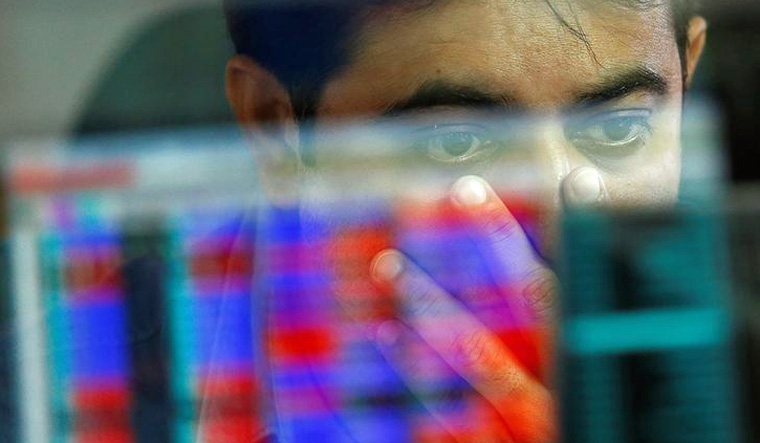As the global markets grappled with fears of the coronavirus outbreak turning into a pandemic, markets across the world extended their losses on Thursday. According to Reuters, rising fears of a pandemic have wiped out more than $3 trillion in value this week alone from global stock markets. Indian stocks, at the same time, have suffered more than Rs 5.5 lakh crore worth of losses in the week.
After plunging over 465.69 points during the day, the 30-share BSE Sensex finally settled 143.30 points, or 0.36 per cent, lower at 39,745.66.
Similarly, the broader NSE Nifty fell 45.20 points or 0.39 per cent to end at 11,633.30. It is for the fifth straight day the Indian indices have ended lower. Both the indexes have shed more than 3.5 per cent so far this week.
also read
- Sensex, Nifty ride on recovery wave; rupee gets volatile
- IPOs in India: 2025 could be another strong year after 2024 saw record fundraising
- Bumper demand: Standard Glass Lining IPO subscribed over 11 times on day 1 of bidding
- Once barred from the stock market, Ketan Parekh is back under regulatory scanner for front-running
With several big names hit, investors are growing increasingly fearful about the economic impact. As a result, its bloodbath in markets across the world, including in India.
However, that said, India is relatively lesser impacted economically. As Bloomberg reports, fund management firms are flagging the defensive qualities of India’s domestic-focused market amid softening energy prices and signs of an economic recovery. Analysts said the recent losses would provide a good buying opportunity as they looked past the virus and contemplated an improving economic outlook.
Despite its neighbour China being the epicentre of coronavirus scare, the number of positive cases reported from India is comparatively fewer compared to other South Asian countries. This has put Indian markets in a better position with investors considering the country's share market as a safe haven in the region. India is “fairly insulated” from external shocks due to its locally driven demand and the recent decline in oil prices.
Experts feel that money intended for other markets have made its way to India because of its relative "immunity". They expect the trend to continue.


